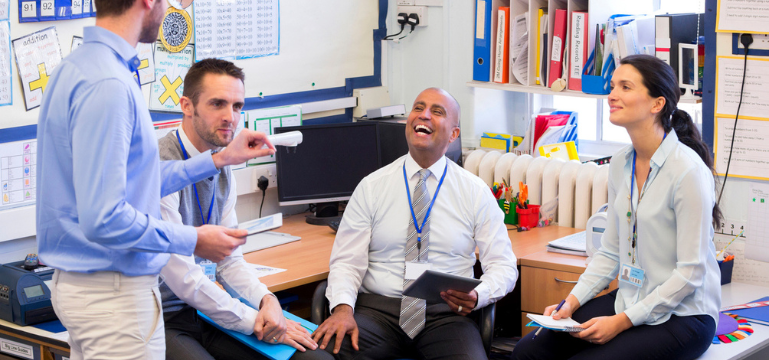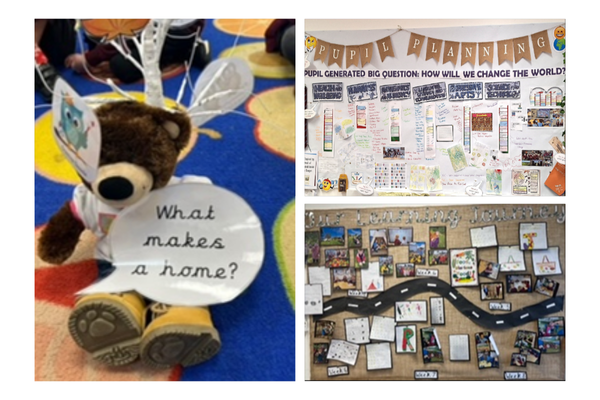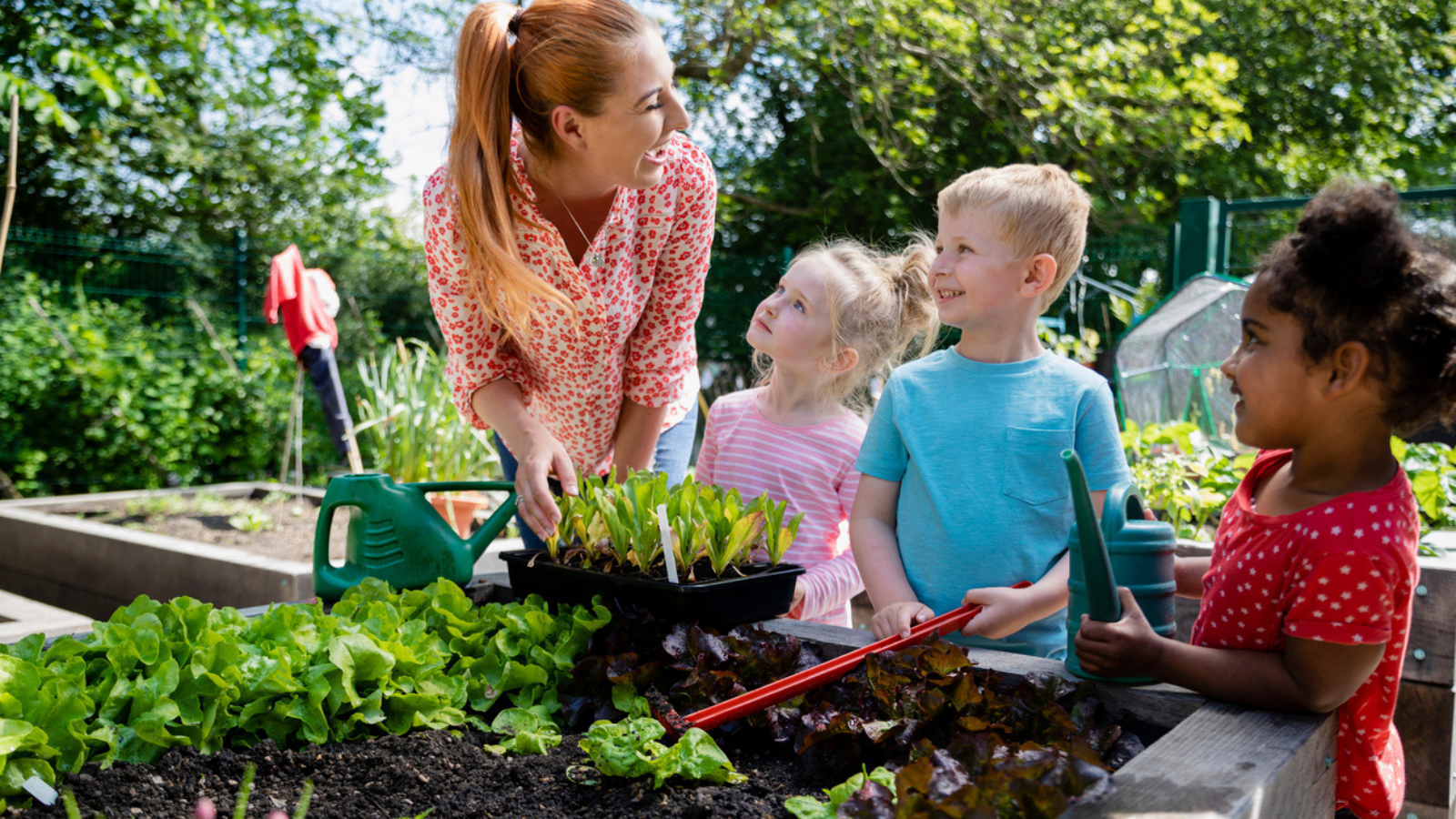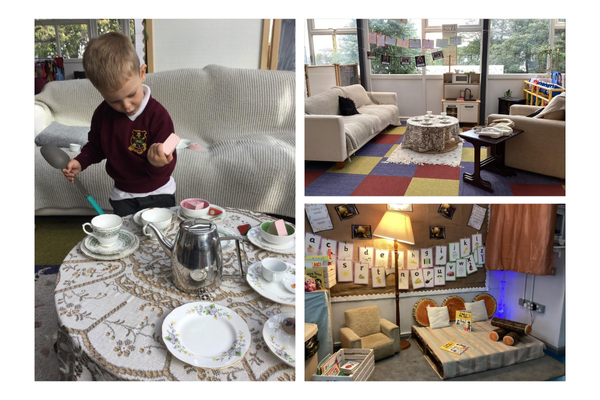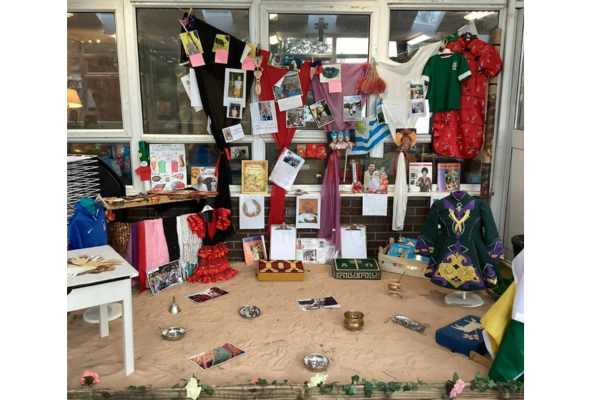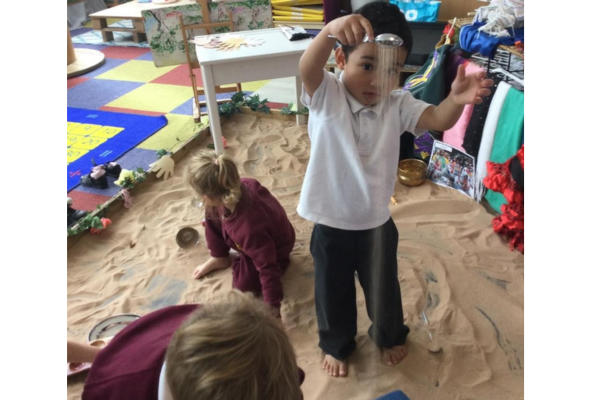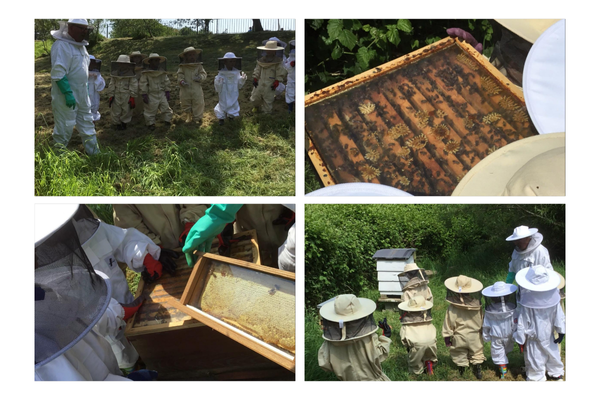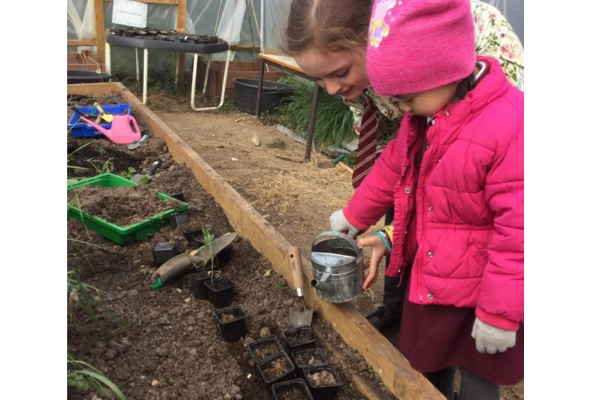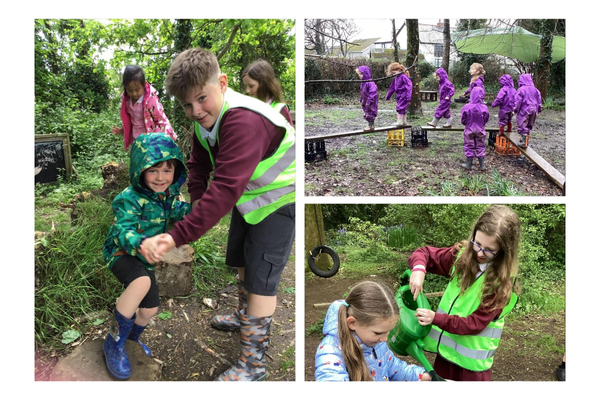Improvement Resource Type: Effective Practice
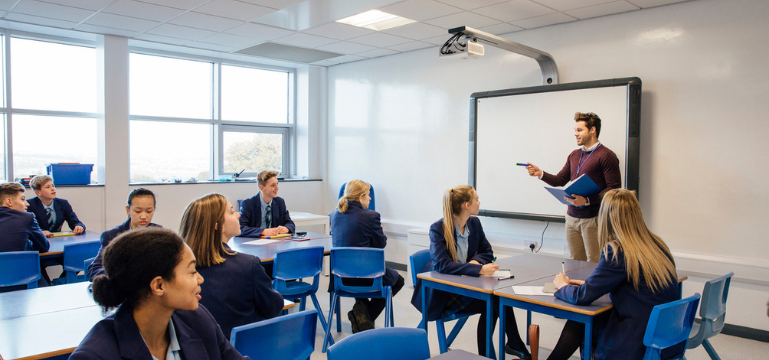
Information about the school/provider
St. Julian’s School in Newport is a large, diverse, and inclusive comprehensive school serving 1,428 pupils aged 11-18. The school hosts a local authority resource base centre, the Learning Development Centre (LDC), for pupils with moderate to severe learning difficulties. The school has an above national average percentage of pupils receiving free school meals. Nearly half of the school’s cohort live in areas with the highest levels of deprivation in Wales. Compared to the national average, a much higher proportion of pupils at the school have either an individual development plan (IDP) for additional learning needs or special educational needs. The number of pupils who speak English as an additional language is significantly higher than most schools in Wales. The school has faced significant challenges in recent years. In November 2014, it was placed in the statutory category of significant improvement by Estyn, and in June 2017, it was placed in special measures. In April 2020 a new headteacher was appointed which led to a restructuring of the leadership team. The school was successfully removed from special measures in November 2021. St. Julian’s continued its upward trajectory, culminating in a positive Estyn inspection in May 2024, which highlighted numerous key successes and recognised the school’s progress and achievements.
Context and background to the effective or innovative practice
The decision to focus on improving oracy skills at St. Julian’s was driven by both internal evaluations and external recommendations. A key recommendation from the Estyn inspection in December 2014 highlighted the need to improve the development of pupils’ literacy skills. Initially, the school concentrated on improving reading and writing skills by devising and embedding separate whole-school strategies and clarifying the subject teacher’s role in supporting whole school reading and writing development; this impacted on learners’ proficiency in these areas. However, through ongoing monitoring, review, and evaluation processes, it became evident that pupils’ oracy skills needed further development. This need had become more pronounced following the pandemic, as many pupils had spent extended periods at home with often limited opportunities to interact and express themselves verbally and engage in meaningful dialogue.
Description of nature of strategy or activity
Oracy Framework
Following the success of the implementation of clear reading and writing frameworks, the school devised a similar approach for oracy aimed at enhancing pupils’ ability to express themselves clearly by using subject specific vocabulary, listening attentively, and engaging meaningfully during structured oracy tasks and classroom talk.
The oracy framework at St. Julian’s was designed to develop pupils’ speaking skills, from the initial stages of organising their thoughts to the final execution of well-structured oral performances or coherent and articulate classroom talk.
Teachers of all subject areas were asked to provide regular and meaningful opportunities for pupils to actively speak and listen in their lessons. Using the oracy framework, a structured approach to improving oracy has been embedded across the school. The framework consists of five stages. This model is displayed in all classrooms to reinforce the framework and ensure consistency in the school’s approach to oracy.
Stage 1: Purpose, Audience, Format and Tone (PAFT) – Pupils are firstly asked to consider the purpose of the speaking activities in which they are engaging. Activities are considered to be either formal, such as presentations, debates etc. or informal, such as spontaneous classroom discussions or responding to teachers’ questions. Then, if relevant (particularly for formal activities), the audience, the format of the activity and the tone or register need to be identified to support the following stages.
Stage 2: Planning – The next step is aimed at ensuring pupils prepare what they are going to say. In essence, learners are encouraged to think before they speak to foster thoughtful and meaningful contributions. The strategies to help pupils plan depend on whether they are engaging in a formal or an informal speaking task. Teachers use strategies such as ‘turn and talk’ or ‘everybody writes’ to support pupils’ thinking time and help them organise their ideas and thoughts. For more formal speaking tasks, comprehensive planning tools, such as mind mapping or flowcharts, are suggested.
Step 3: Precision – In the next phase, the emphasis is on ensuring that pupils’ speech is accurate and articulate. By honing precision, pupils are able to communicate more clearly and effectively. Teachers play a crucial role here as good language models. They support pupils’ by introducing key phrases or sentence starters to help pupils refine their spoken language. Strategies include encouraging pupils to use full sentences and more formal language, while also focusing on eliminating colloquial fillers. Teachers intervene and challenge pupils’ spoken contributions by asking them to rephrase or use varied vocabulary.
Step 4: Performance – If relevant, teachers provide strategies to help pupils refine their presentation skills, such as adjusting their speaking pace, projecting their voice, or using appropriate body language. Real-time feedback allows pupils to continuously practise and enhance their oracy skills. Performance-focused activities, including rehearsing speeches, role-plays, and public speaking exercises, are integral in building pupils’ confidence and ability to present their ideas effectively.
Step 5: Participation – Finally, pupils are encouraged to actively involve themselves in classroom discussions and speaking activities by listening and responding, asking questions, joining in choral responses, thinking about what has been said and building on the views of others. Teachers reinforce classroom expectations to create a supportive environment where all pupils feel that their contributions are valued.
Central to the oracy framework is a focus on vocabulary development and the quality of questioning. Teachers are trained to model rich vocabulary and use probing questions that challenge pupils to think deeply and articulate their thoughts clearly.
Behaviour Curriculum
In response to challenges following the pandemic, St. Julian’s implemented a behaviour curriculum to support pupils who were struggling to understand the behavioural and engagement expectations of secondary school. Although teachers had effective strategies for managing behaviour, it became apparent that pupils needed clearer guidance on how to behave and engage appropriately in class to support their own learning and that of others.
The behaviour curriculum was designed to address this gap, with a focus on teaching pupils’ specific behaviours and engagement techniques each month, such as how to enter and leave the classroom, how to listen to teachers and peers, how to speak to teachers, how to answer questions, and how to raise concerns. These sessions were delivered by form tutors, who were supported by professional learning sessions every two weeks. The implementation of this curriculum was not only meant to improve behaviour for learning but also to impact pupils’ oracy skills, as it developed learners’ metacognitive skills around how to engage in discussion, ask questions and listen to others as well as the importance of these skills.
Professional Learning
To ensure the success of the oracy framework and behaviour curriculum, St. Julian’s invested in ongoing professional learning for teachers. These sessions were crucial in equipping teachers with the strategies needed to foster oracy skills and support appropriate classroom behaviour effectively. Teachers were trained to become facilitators of oracy, creating environments where pupils felt confident to speak and participate. The professional learning sessions also emphasised the importance of teachers as good language models, highlighting how their use of language and questioning could significantly impact pupils’ communication skills.
What impact has this work had on provision and learners’ standards?
The integration of the oracy framework and the behaviour curriculum proved to be highly effective. As pupils learned how to behave appropriately in different school contexts, they also developed better communication skills. The focus on listening, speaking, and responding in the behaviour curriculum complemented the oracy framework, leading to improved pupil engagement and participation in classroom discussions. The oracy framework has supported pupils to become more confident in expressing their ideas, speaking clearly and concisely in lessons and to enable them to use more ambitious and subject specific vocabulary when speaking.
How have you shared your good practice?
The school has shared this practice with the local authority, consortia and other schools through network meetings and professional discussion.
